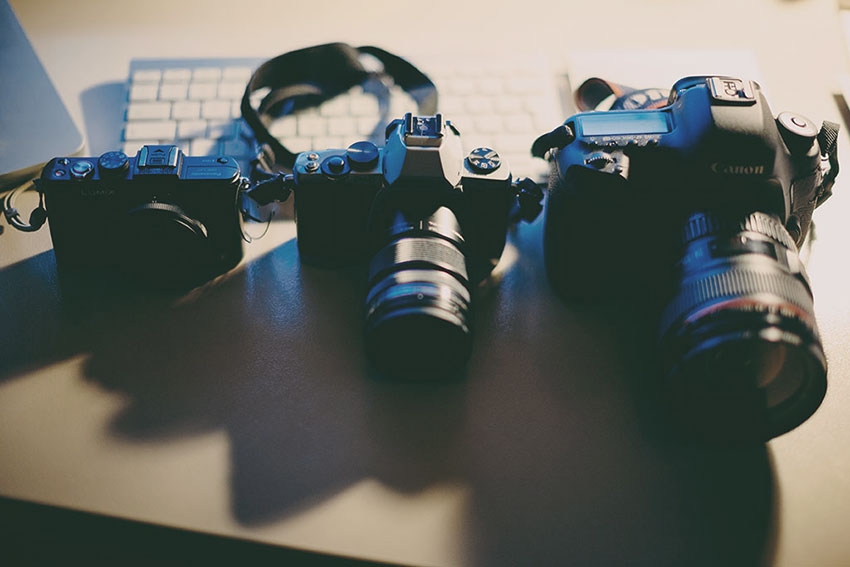
Christmas is over but one or another might have received some money to spend on a new camera. So today I want to help you with your decision.
First of all, and I can’t emphasize it enough, a good photo never comes from the camera. It comes from the vision and ability of the photographer. A talented photographer can get great photos with every camera, the more fancy cameras only make it easier for him/her. I would even say 90% of the time you take better photos with a little point & shoot camera that you always have with you compared to a big DSLR. The reason is the point & shoot lets you focus on what’s most important, the image, instead of fiddling around with settings, choosing the right lens or even worrying about others who may be disturbed by a big camera. With a little point & shoot camera I find myself really only thinking about light, framing and composition and the moment. And you can act much more discretely. Plus you don’t expect amazing pictures from a little camera, which makes you much more relaxed ;-)
That said I would frankly recommend to use whatever camera you have and try and learn to take great pictures in the first place. I shot my most successful photo with a little Fujifilm F30 from 2006, it's this one ...
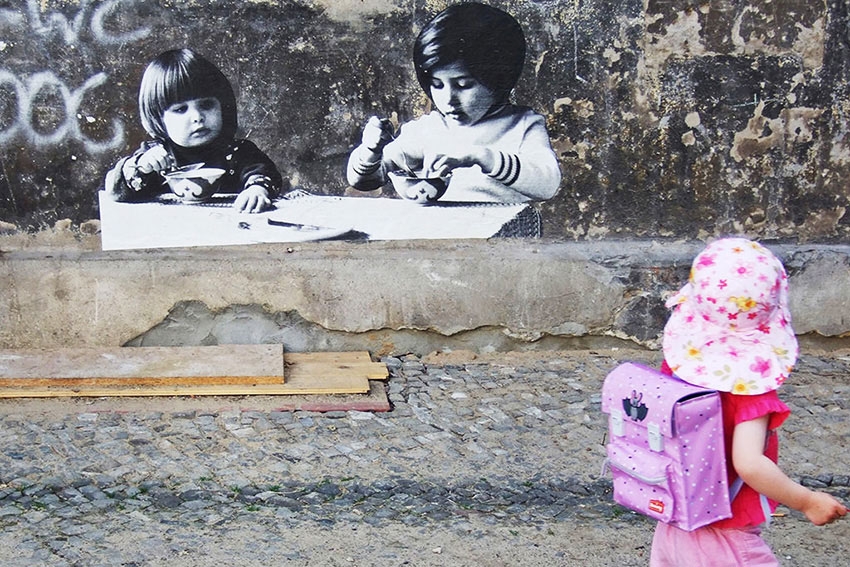
But on the other hand I’m also using fancy cameras and for good reason, so I will give actual recommendations now for those of you who really want to buy a new camera.
Before buying a camera you need to define a couple of things, because there are hundreds of different models that serve for different purposes and they have different prices as well.
I start with my top recommendation for people who love photography, love to look through a big viewfinder to frame and who love the images to look like shot with a film camera. It’s also the camera that I would buy if my budget was limited to something between 1.000 and 2.000 € including a lens. I would go and buy a used original Canon 5D, you can find great camera reviews here. Ken Rockwell is one of the last independent reviewers, only telling what he really thinks. For more in depth testing I always go to imaging resource, it’s here. I also go to dpreview, but I don't like that they've been acquired by Amazon. The 5D was introduced in 2005. It sold till the end of 2008. You can find them on ebay for maybe 500 € sometimes. I would add a Canon 50 1.4 to it and a Canon 24-105. I love a two lens setup, the zoom to walk around and the 50 for creative stuff and low light. The 50 is actually the more important lens, because you can shoot in every possible situation, the slow zoom will have trouble with moving subjects in low light, but I love wide angles and a zoom is so handy for daylight shots.
Why an over 8 year old 5D? Because it’s a great camera, it gives spectacular images, has enough resolution for every possible print size, its viewfinder is nice and big and it has this classic feel to it.
If money was no object I would of course buy a new 5D Mark III, but it’s over 2.500 € new and doesn’t give better images, it’s just so much easier to use.
If you want a new great full frame camera (the sensor has the same size as 35mm film back then) but don’t have 2.500 € to spend on a body I would take a Canon 6D, it’s a superb camera, lighter and smaller than a 5D Mark III with even better low light abilities, it’s just lacking some pro features 90% of the time you don’t need anyway.
What about Nikon? Nikon is as good as Canon, you may as well take a Nikon D610 if you want the newest and greatest or a D600 if you’re out for a bargain. The Nikons are actually the better cameras compared to Canon's competitor the 6D. They have 100% viewfinders (so you see exactly what you get in your finder), dual SD card slots, can shoot faster and have a more sophisticated Autofocus system. I would take Canon because they still have some artistic lenses in their lineup which you wouldn’t find with Nikon, especially the Canon 85 1.2 and the 50 1.2, both of which let you take incredible looking images with sharp subject and blurry backgrounds even with distant shots. This is about art and less about technically perfect and sharp images. If that’s what you’re after, take a Nikon, they actually seem to have more sharper lenses in their lineup, especially super wide angles. I was also asked to say something about video. To be honest, I don’t shoot video but I know that all DSLR do pretty well, a dedicated camcorder, though, is better and much faster focussing. But, with a DSLR you get more of a cinematic look with shallower depth of field due to larger sensors. A full frame DSLR actually gives even shallower depth of field, resulting in very blurred backgrounds. A crop DSLR/camera gives a look similar to 35mm motion film cameras. You won't get that look with a camcorder because of their smaller sensor, much more is in focus.
If those beasts of cameras are too big for you and you want smaller I would buy a Canon 100D, it’s their newest DSLR with a crop sensor (less than half the size of full frame). It’s tiny and still takes all lenses in Canon’s lineup. What you lose compared to full frame is the ability to throw backgrounds out of focus and draw attention to your subject. It’s my main reason to shoot full frame. You also lose the big viewfinder, crop cameras have much smaller finders. Crop cameras are also a little worse in low light and have a little less dynamic range (the ability to retain details in highlights and shadows of an image).
I show you what I mean with those things …
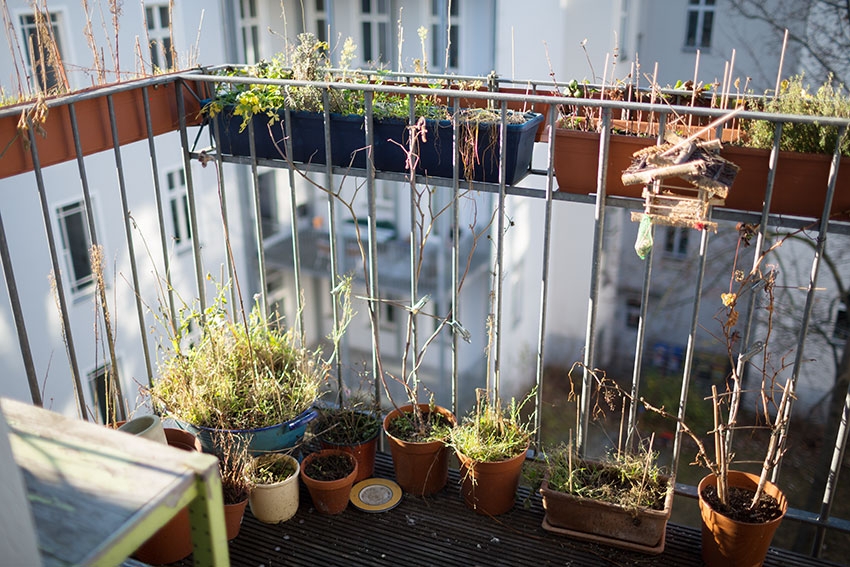
With a full frame 5D and a 35mm f/1.4 you can nicely blur backgrounds and emphasize on the subject.
It's much more difficult and not as beautiful with a crop camera, here an Olympus OM-D with a 35mm equivalent lens at f/1.8 ...
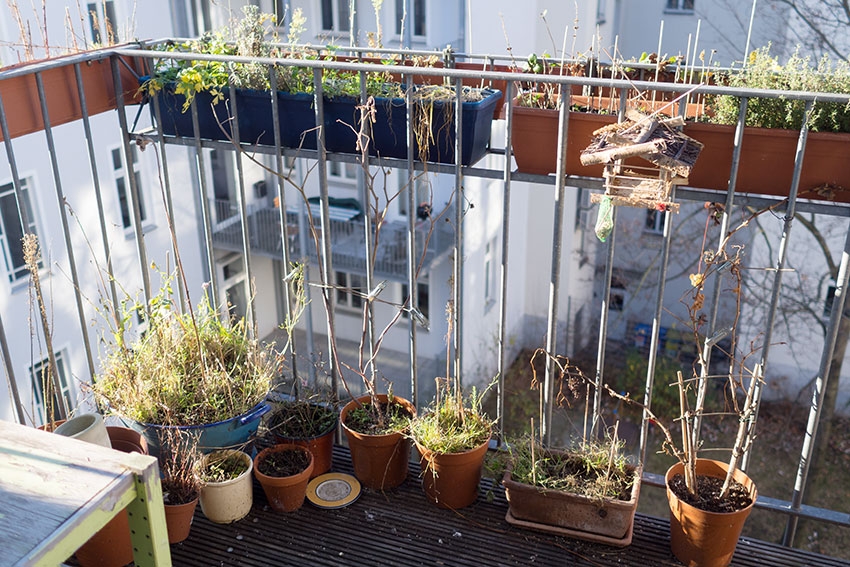
With a point & shoot, even at f/1.4, everything is in perfect focus ...
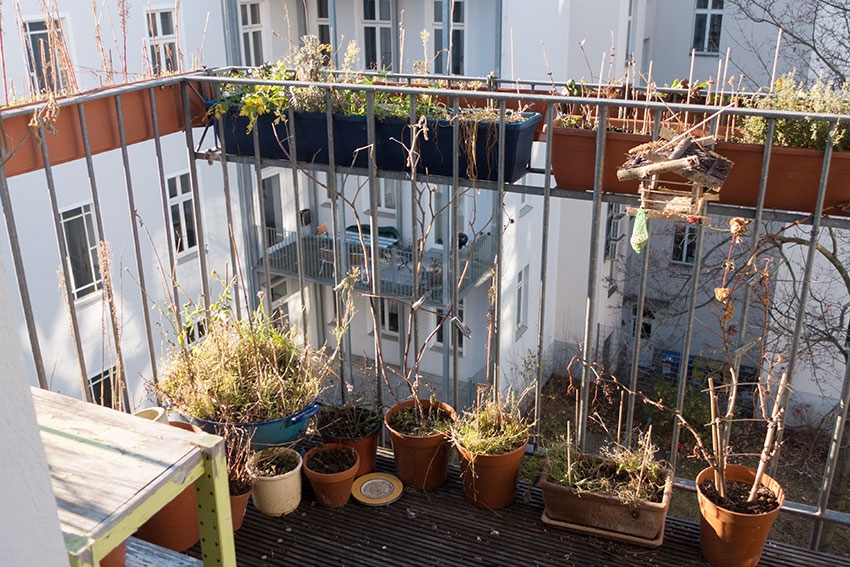
A really great little camera that is even smaller and lighter than the 100D is Olympus’ OM-D E-M5, it’s a marvelous, great looking little camera. I just don’t bother to pick it up when a 5D is around because of its creative potential. There are a couple of other great crop options, like a Fuji X100s, but you will only have a fixed 35mm equivalent lens. Fuji’s interchangeable lens cameras are pretty good, too. I just find their ergonomics a bit awkward, but you may get used to that.
You could also buy a Nikon D7100, but I would prefer a full frame camera, it’s not that much smaller, actually a Canon 6D is the same size and nearly the same weight, a no brainer in my mind.
Ok, you find DSLRs and interchangeable lens cameras too bulky and just want a great little camera? I don’t recommend bridge cameras because their sensors are as small as of point & shoots but they are bulky as well, vanishing the main point of not buying a big sensor camera.
Again Canon’s point & shoots are the best. First the negatives that are the flipsides of a pocket camera: you are unable to blur backgrounds, everything is always sharp and in focus, giving you no possibility to draw attention to special parts of the image (makes you compose much more carefully on the other hand, actually often leading to better images). Point & shoots are not very good in low light, but there are some options that stand out of the crowd. Point & shoots are terribly slow in operation, especially autofocus, making them pretty much useless for people shots, it’s more like a hit and miss.
Here are low light shots, real world samples, the 5D and OM-D picked ISO 6400, the LX7 3200 ...
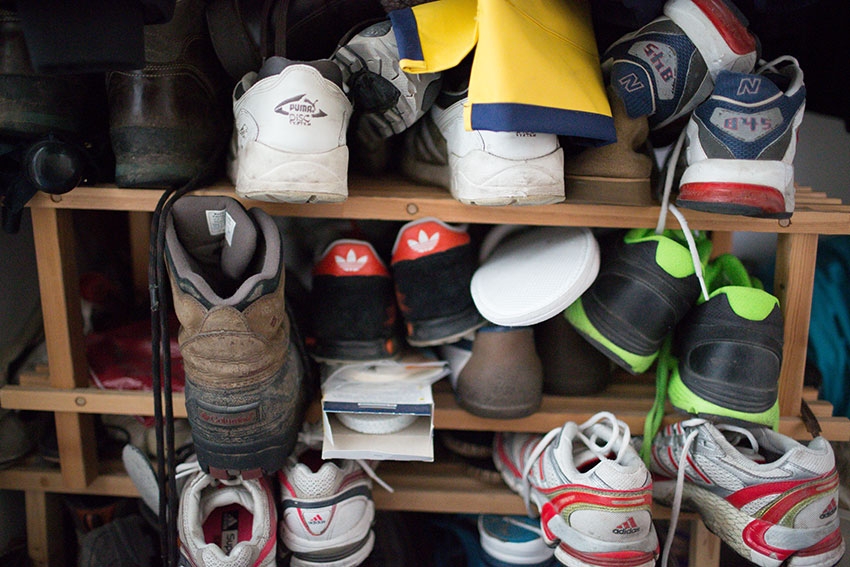
5D,
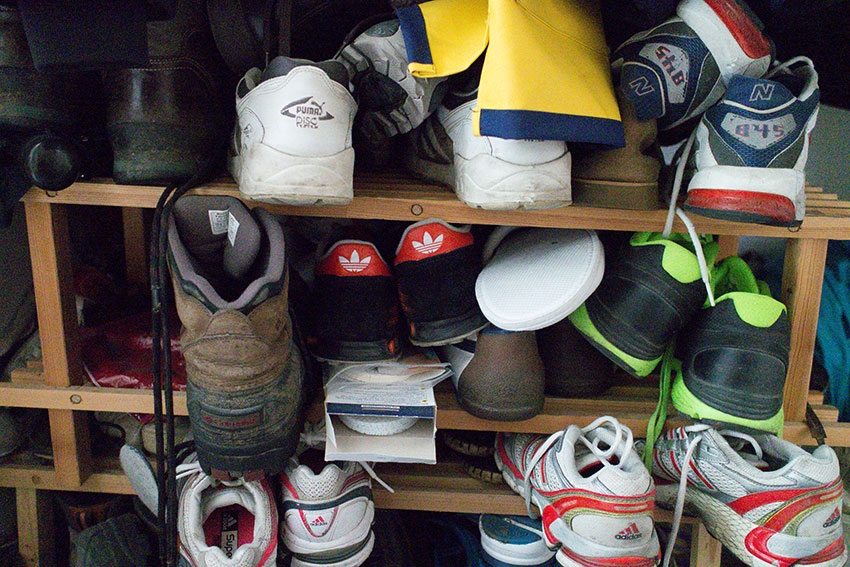
OM-D and ...
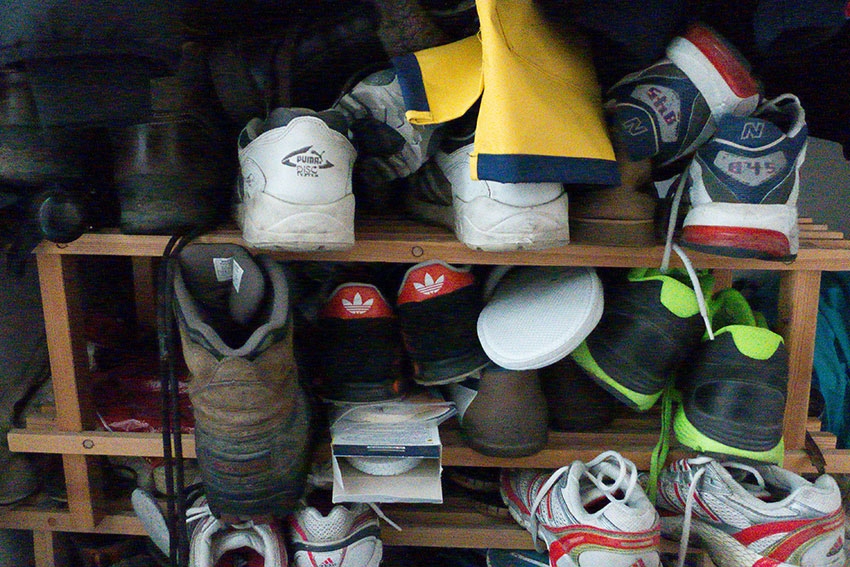
LX7! To get a better idea, let's look closely ...
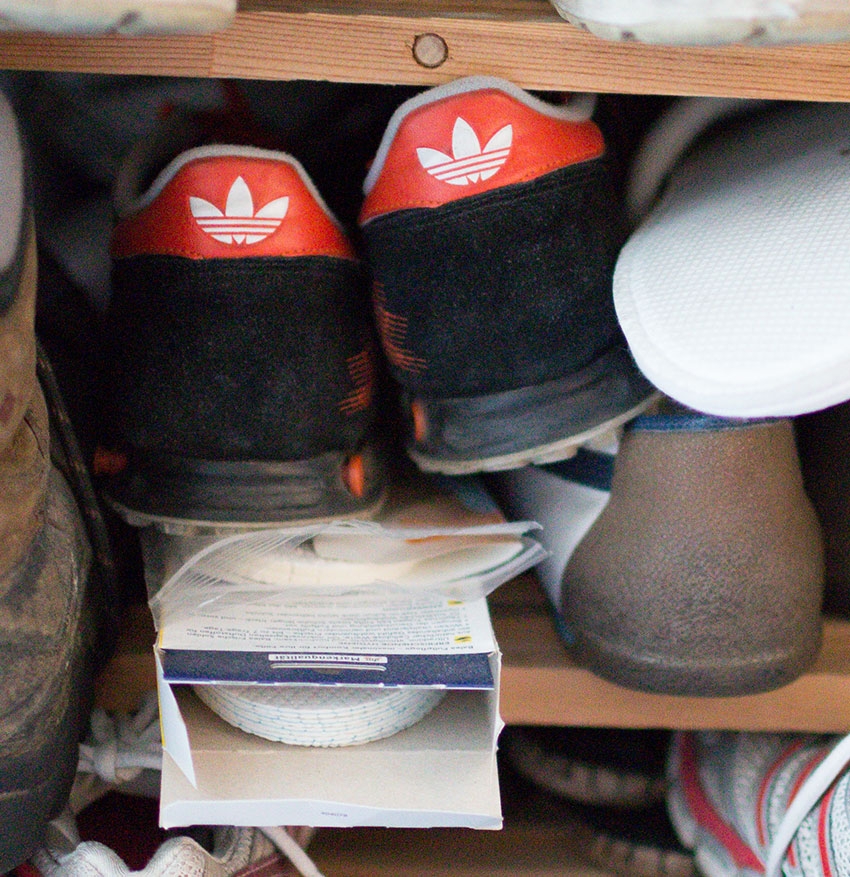
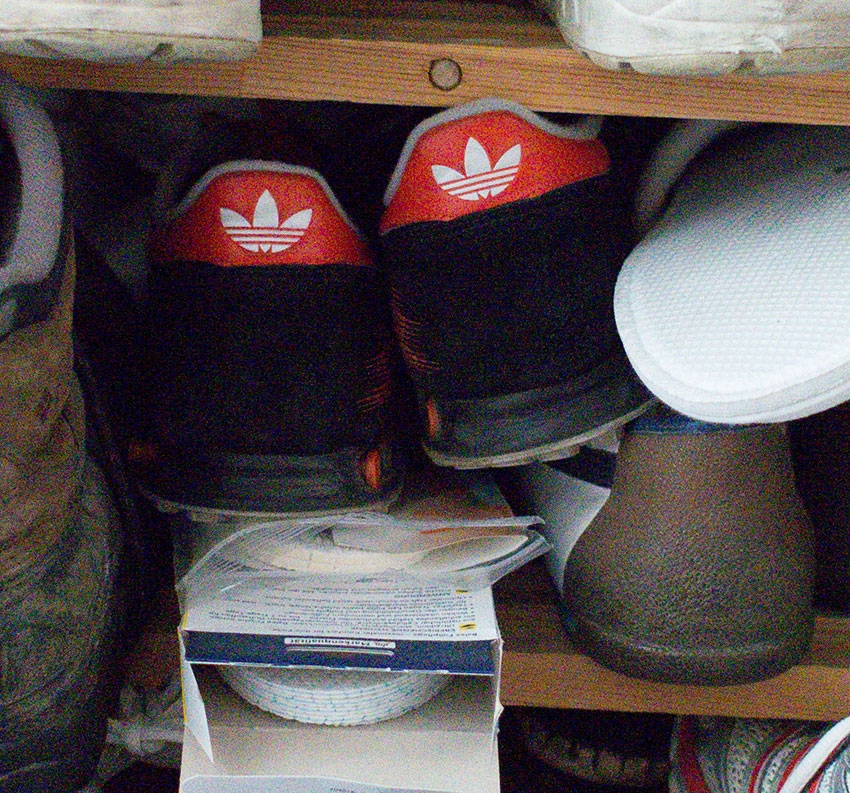
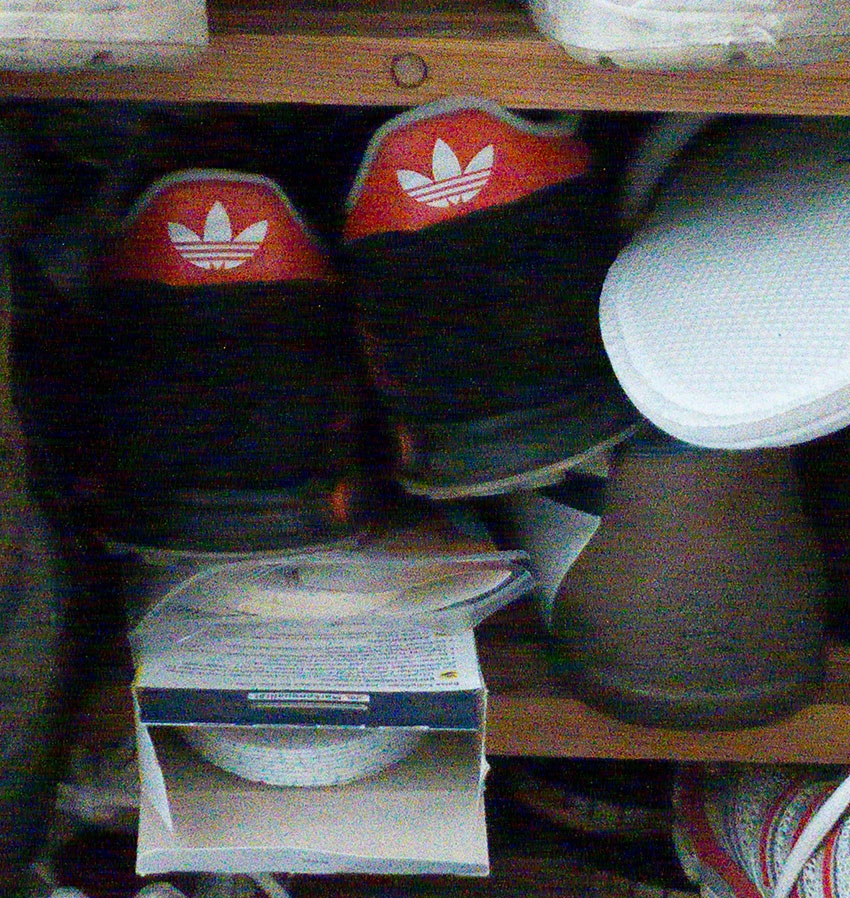
Clear?
I also want to show you what better dynamic range with a big sensor means. Have a look at three images taken with the three competitors ...
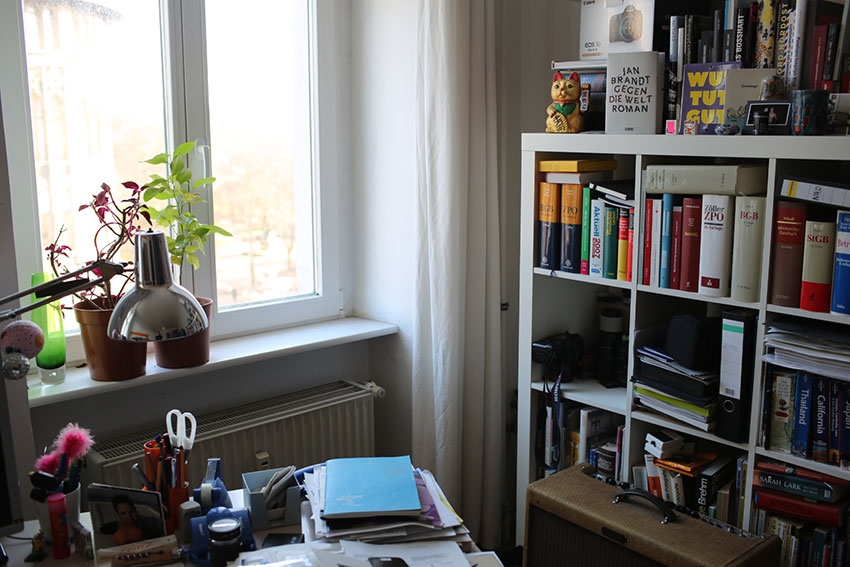
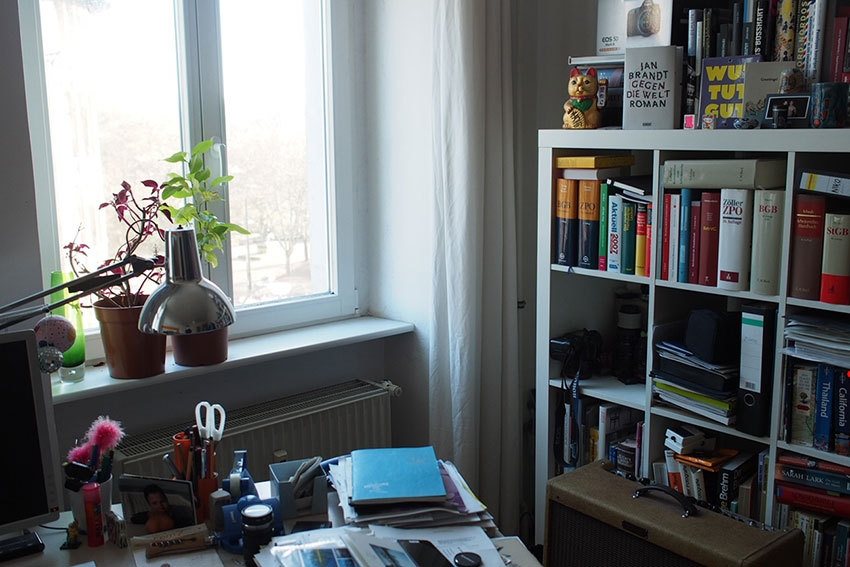
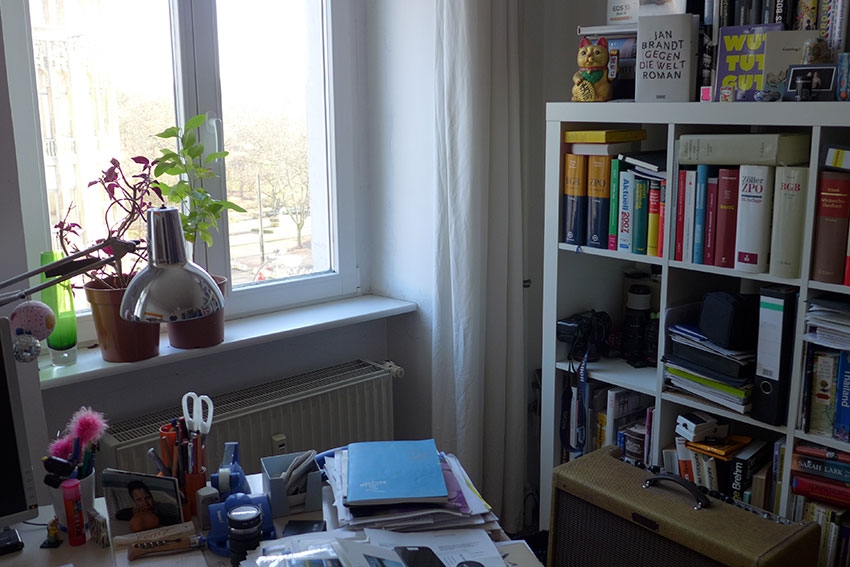
The window is washed out in every image and you have to decide on what to compromise, highlights or shadows. With a bigger sensor you can pull back more detail, particularly in the shadows. I've exaggerated by pulling the highlights and shadows back all the way, only to see what we get. Check this out ...
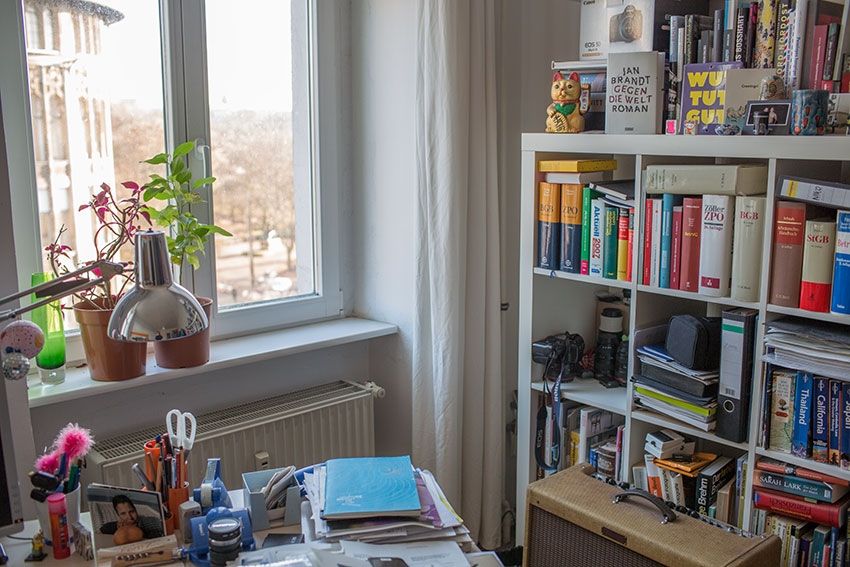
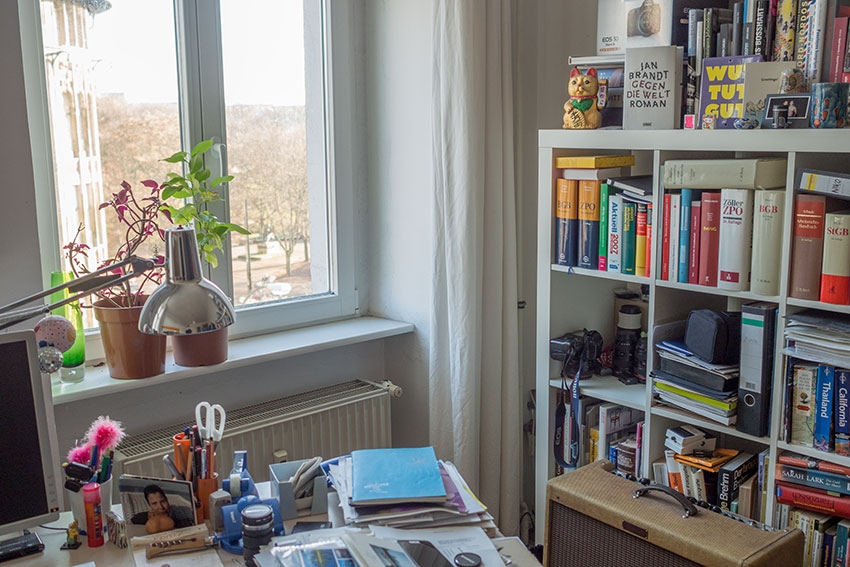
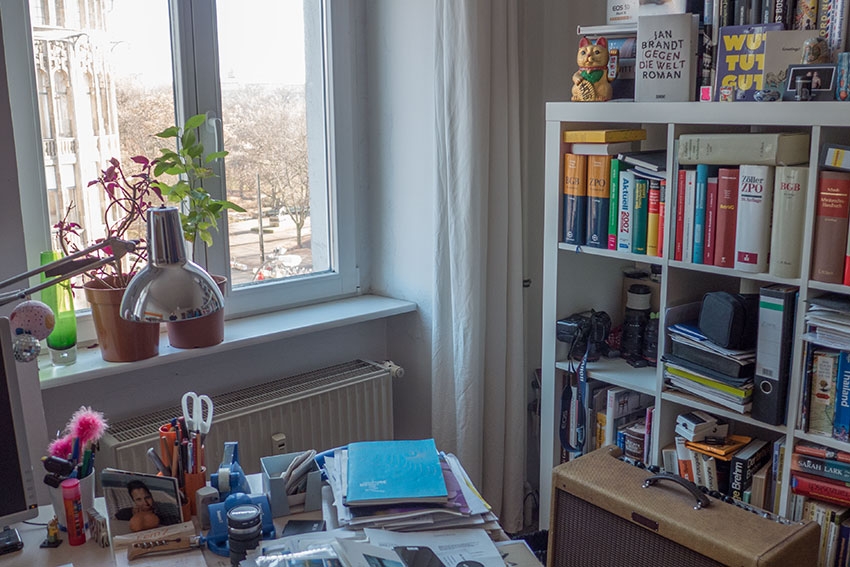
Highlight detail in those shots is about the same (the LX7 is a bit worse), but you get cleaner shadows the bigger the sensor, have a look ...
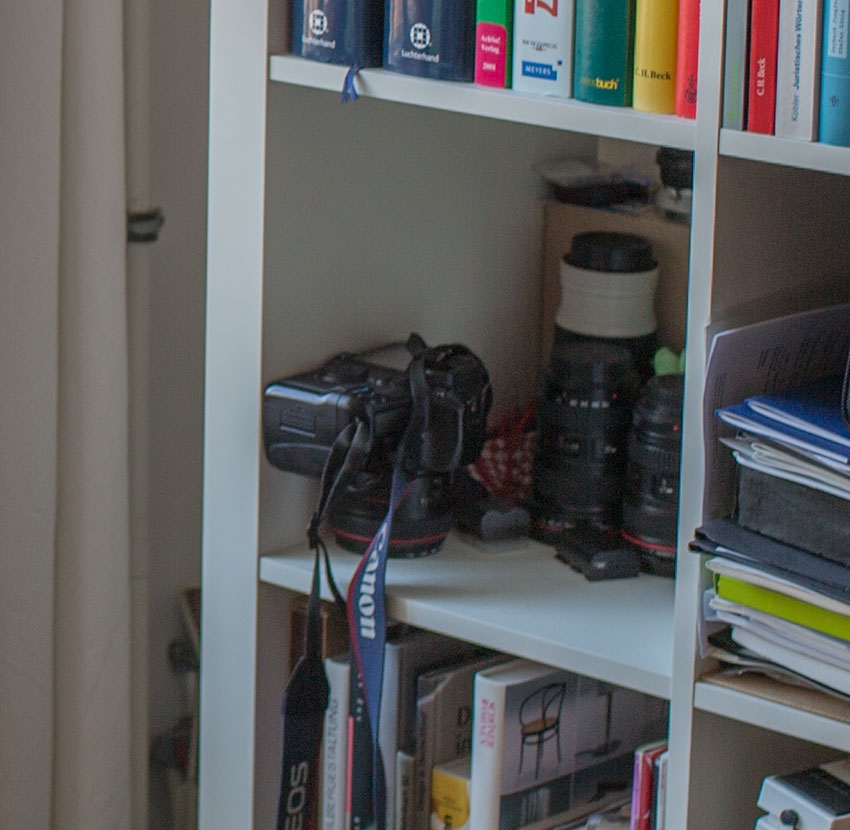
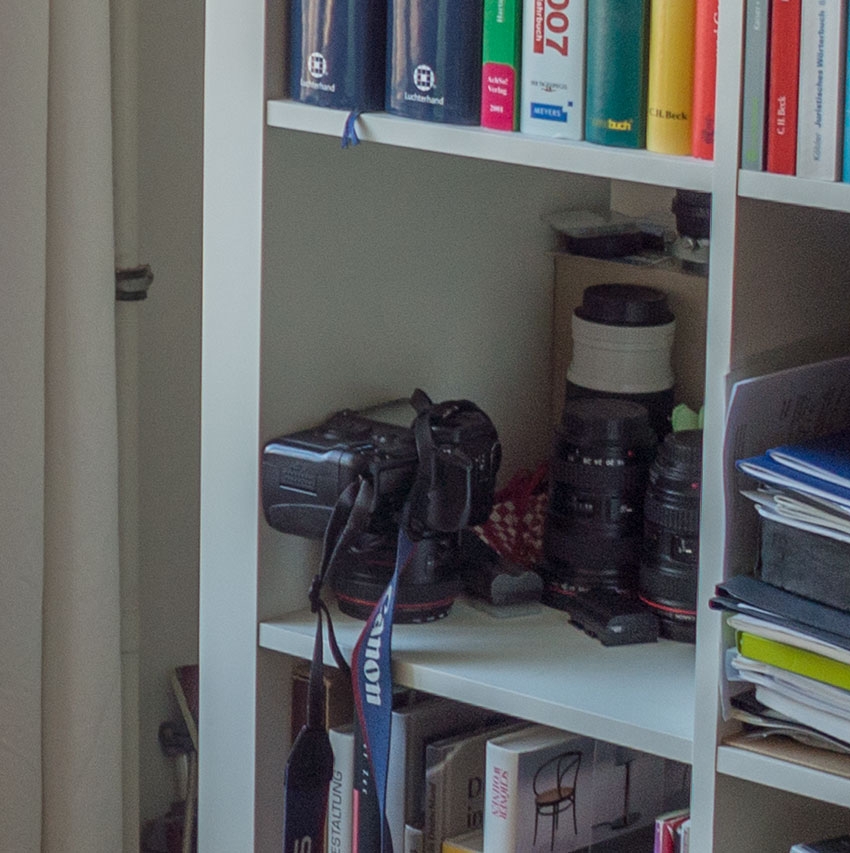

Canons aren't as good as Nikons for deep shadow detail but it's still better than crop sensor cameras. When you keep highlights in check you can pull a lot back from the shadows, even with a point & shoot, much more with a big sensor camera, though.
Anyway, for walk around photos point & shoots are great and much better than your smartphone camera (although you can even make great photos with that, Chase Jarvis has shown), even the cheapest Canons like this one.
If you care about low light photos a bit more, you may take a Canon S120, it’s a super camera with a nice zoom lens, that is fairly bright at the wide end. I’m always drawn to buy one of those, just because they are so small and you can take them everywhere. I once bought one of the predecessors, the S95, and loved it.
Last year I bought another more exotic premium compact, the Panasonic LX7, it has a little wider lens than the rest. It's also a Leica lens, one with an extremely bright f/1.4 at the wide end. The great thing is it only darkens to f/2.3 when fully zoomed in, giving it a huge advantage even over the Canon S series. I’d probably buy it again, the only annoying thing apart from it being a little bit bulkier is the fact that you have to detach and attach the lens cap manually, making it arguably more sluggish compared to the Canons.
Well, I think that’s it for today. And don’t forget to go into a camera shop and play with the different models that you’re interested in. You may find out some things that you love or hate when you have them in your hands. That helps with your decision as well.
Alright, happy shooting, see you next week
KIKI
Update: I have shot three night shots with the three cameras to give you an impression of noise levels with different sensor types, all shot at ISO 6400, f/1.8, 1/30s, full frame first, Olympus 4/3 second ...
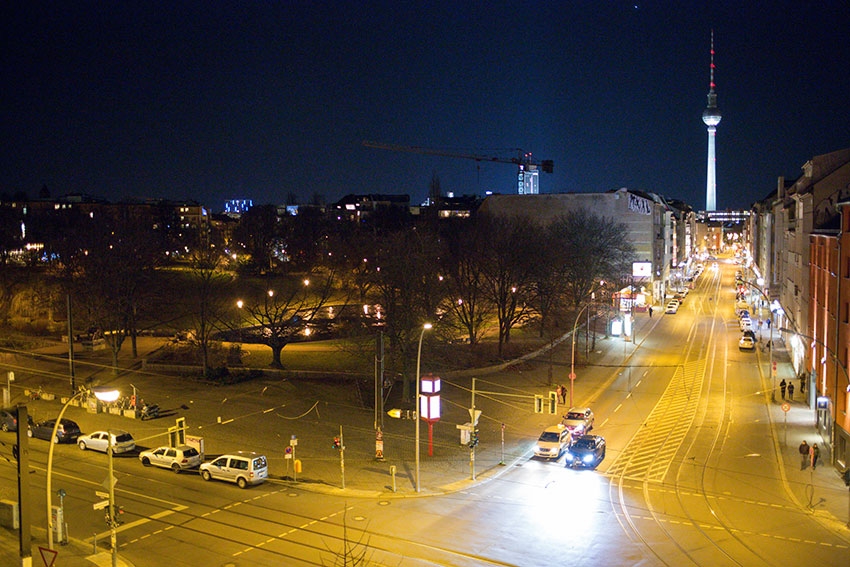
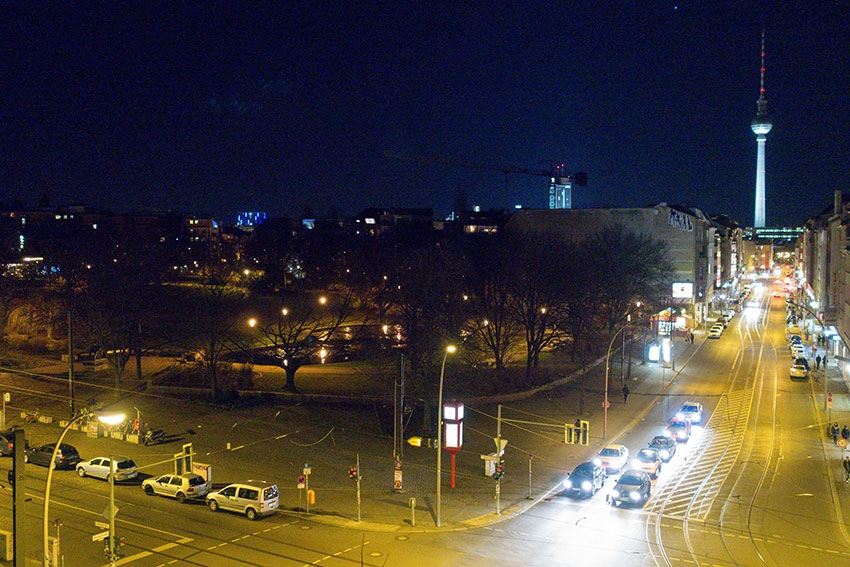
And now crops of the dark parts of the image ...
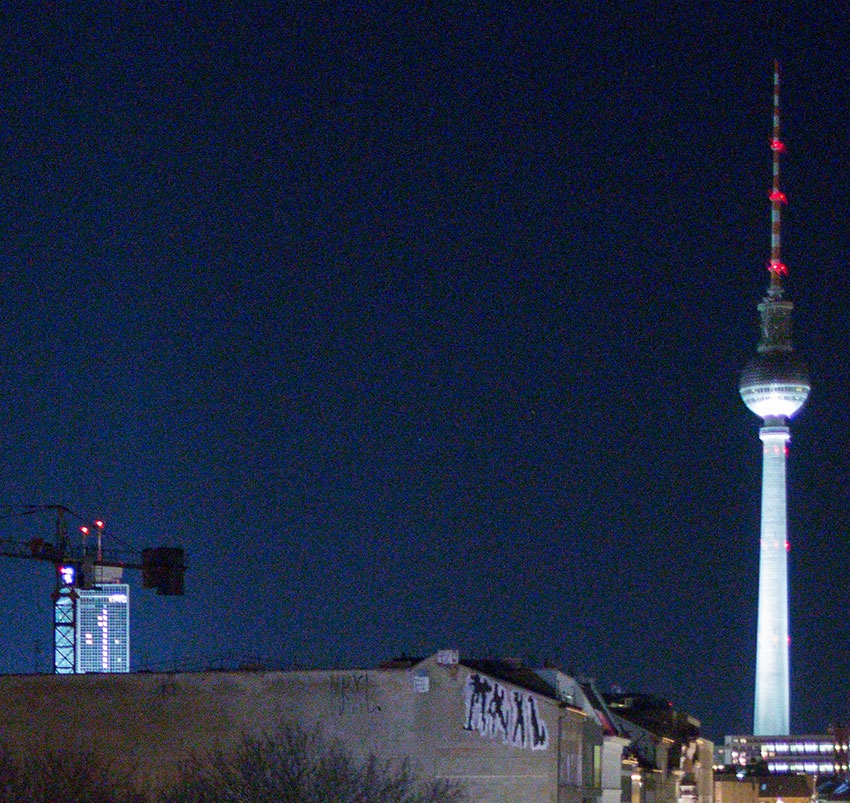
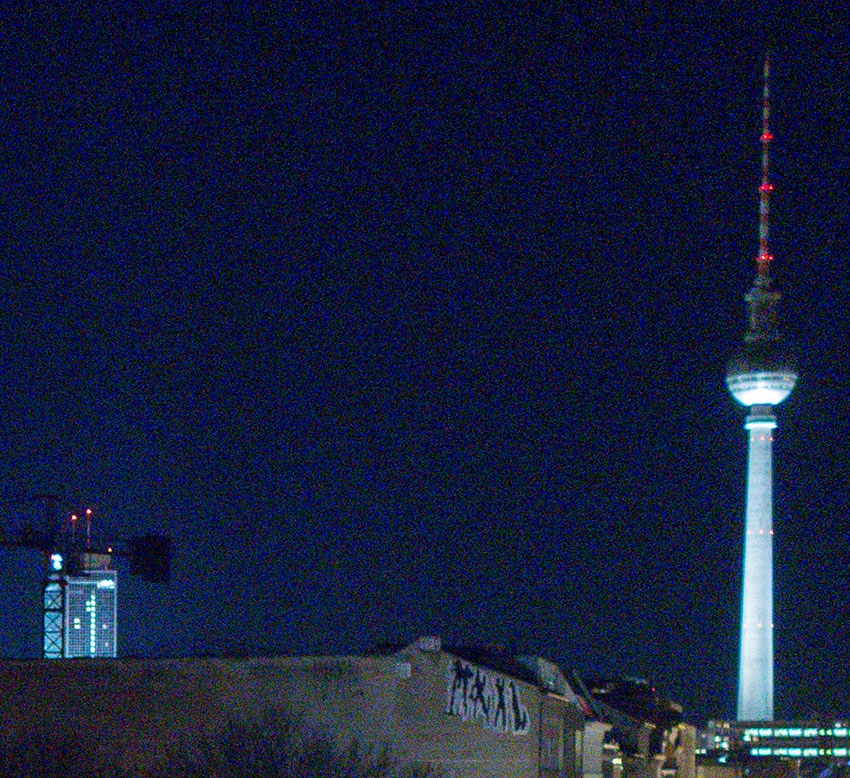
And last and least ;-) the point & shoot ...
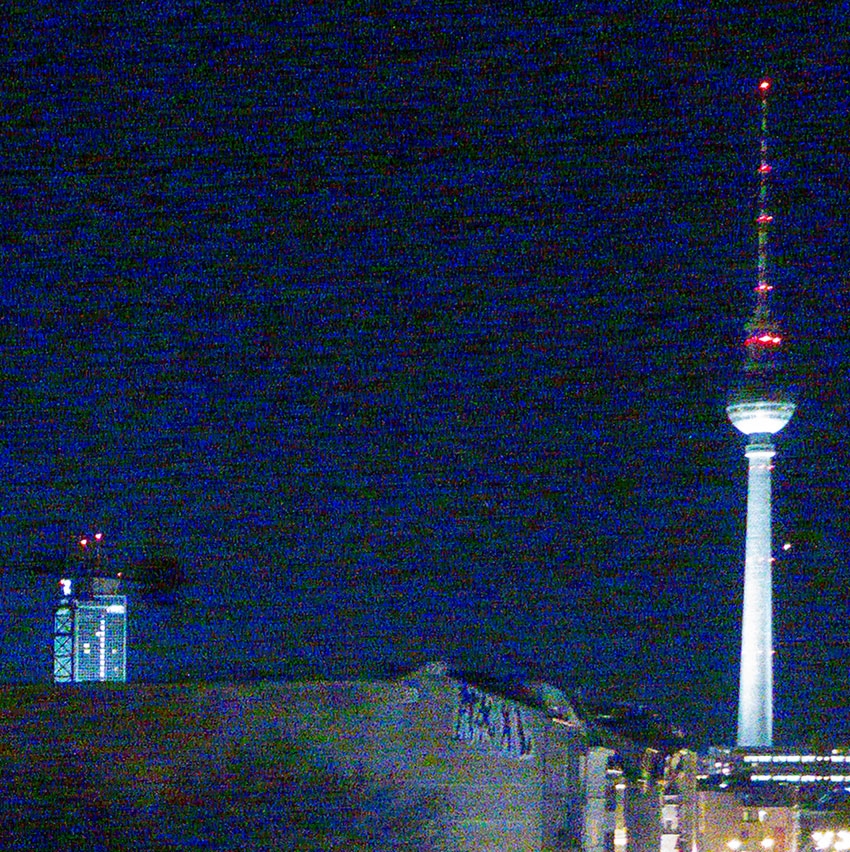
Good night! ...